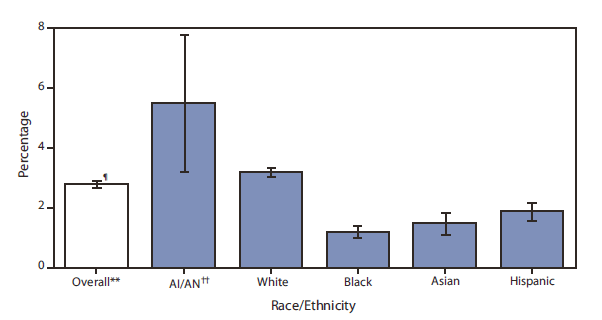* Respondents were asked, "Without the use of hearing aids or other listening devices, is your hearing excellent, good, a little trouble hearing, moderate trouble, a lot of trouble, or are you deaf?" "A lot of trouble" and "deaf" were combined into one category. Unknowns were not included in the denominators when calculating percentages.
† Race refers only to persons who indicated a single race group. The four racial groups only include persons who are non-Hispanic. Hispanics might be of any race.
§ Estimates were age adjusted using the projected 2000 U.S. population as the standard population and using four age groups: 18--24 years, 25--44 years, 45--64 years, and ≥65 years. Estimates were based on household interviews of a sample of the civilian, noninstitutionalized U.S. population.
¶ 95% confidence interval.
** Includes other races not shown separately and multiple race.
†† American Indian/Alaska Native.
 ShareCompartir
ShareCompartir



